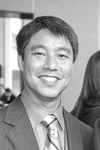
David Inoue
If there is one thing that all Americans today can agree upon in these especially divisive times, it is the unimpeachable loyalty and dedication to country of our World War II Nisei veterans.
To appreciate the gravity of the sacrifices made by the Nisei veterans, you might visit the Japanese American Memorial to Patriotism During World War II in Washington, D.C. Alongside the panels listing the 10 War Relocation Authority concentration camps are panels listing the 810 Japanese American soldiers who gave their lives in service.
The Go for Broke Monument in Los Angeles’ Little Tokyo neighborhood lists the 16,131 Nisei soldiers who served in the 100th Infantry Battalion, 442nd Regimental Combat Team, Military Intelligence Service, 522nd Field Artillery Battalion, 232nd Combat Engineer Company and the 1399 Engineer Construction Battalion.
Both of these sites do well to honor the history and sacrifices of WWII Nisei veterans.
I would urge anyone visiting Washington, D.C., to visit the memorial during the day to make sure you can catch every detail, but return at night, when the memorial takes on a serenity and peacefulness unrivaled by almost any other monument in a city full of them.
Only then can you truly feel the full gravity of what faced the Japanese American community during WWII and the battles fought by the Nisei soldiers — both at the battlefront and the home front.
Although we as a country have done much to recognize all of those who served during WWII, and even the Korean War soon after, that has not always been the case.
The Vietnam War was a tragedy both for the Vietnamese but also for the American soldiers we sent to fight that war. Like the Nisei veterans, the Vietnam vets also fought a battle at home upon their return.
We have recognized our mistakes since and do much to recognize those returning from the more recent Gulf War and the ongoing war on terrorism. Sometimes that recognition can ring hollow. Does everyone standing and applauding at a baseball game really address the challenges faced by veterans upon their return?
Prior to coming to JACL, I worked at a medical shelter for the homeless in Washington, D.C. Roughly 15 percent of our clients were veterans. In the general population, veterans make up only 7.3 percent, according to the most recent census estimate.
In the most recent homeless count by the Department of Housing and Urban Development, only 8.6 percent of veterans were homeless. The fact that veterans were requiring the services at my previous workplace meant we were not only failing them in preventing them from being homeless, but also failing to provide adequate health care services, leading them to require stays at our facility.
Japanese Americans have always been supportive of our veterans, most of all our WWII vets, as well as those who have served since.
For JACL, we have an additional imperative to support our veterans. As a civil rights organization, it is the right of veterans to be treated with dignity by our country, and we, as an organization, must work to preserve that right.
So, as you pause this year on Veterans Day, or perhaps at your next sporting event when everyone rises to recognize the service of men and women in attendance and on the Jumbotron, make sure that those are just the dots connecting what should be a regular recognition of our veterans.
Fight for improved funding and services from our Department of Veterans Affairs, as well as continued reform of that agency. Hold our politicians accountable to provide the oversight of these programs, and not just show up for the Veterans Day services once a year.
When we tell of what it means to be Japanese American and why we fight for civil rights, the story of our Japanese American veterans is a vital part of that story.
Also, take the time to stop and contemplate the sacrifices others have made because of their love of country, and ask yourself if you are taking full advantage of the opportunities given to you to make this country better.
We don’t all have to serve in the armed services to demonstrate our patriotism and love of country, but we must always find ways to celebrate and live out our nation’s ideals so that we might all strive to be better Americans for a greater America for everyone.
David Inoue is executive director of the JACL. He is based in the organization’s Washington, D.C., office.



